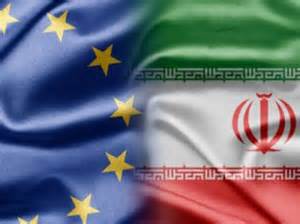ID :
340343
Sun, 09/07/2014 - 12:47
Auther :
Shortlink :
https://oananews.org//node/340343
The shortlink copeid
Iran-EU Ties: Challenges And Opportunities

Tehran, Sept 7, IRNA - The positive development of Iran-EU ties over the past year, seen as essential as the first step to better ties, should be followed by practical actions on the part of the EU to reach a milestone in bilateral relations, wrote ˈIran Dailyˈ in its Opinion column, published Sunday.
In this light, the EU must reconsider its past wrong policies toward Tehran and take the liberty to go beyond the formats defined in the US policies of unilateralism, suggested the English-language newspaper.
The daily was referring to the flurry of visits by EU officials to the Islamic Republic earlier this year, and in recent days, the visit of Iran’s FM Mohammad Javad Zarif to three European states—Belgium, Luxembourg and Italy. Foreign ministers of several EU countries are also scheduled to visit Tehran in the coming days and weeks.
Iran has, over the past year, tried to take confidence-building measures in the nuclear talks and the development of ties with the EU while pursing the legal rights of its people. It is a fact that in the past three decades, the Islamic Republic presented a unique model in interactions with the world that was based on three main principles: dignity, wisdom and expediency, the paper noted.
Adherence to commitments, consistency, avoiding double-standards, supporting regional allies and using all facilities to implement agreements with other parties are among the features of the Islamic Republic that attracted them to the economic, political and other fields, added the daily.
If the Iranian government follows these basic features within the framework of constructive interaction, it will create many opportunities for regional and international players, including the Europeans, for cooperation with Iran, highlighted the daily.
These features of the Islamic Republic, in addition to other characteristics including religious democracy, integrity and national unity, people’s participation in the decision-making process—the high turnout of Iranians in 2013 presidential election—young and skilled manpower, its vast land, rich energy and mineral resources as well as safe and affordable roads push foreign decision makers to consider Iran more seriously, believes the daily. Besides Iran has several other advantages for the EU:
1- Iran’s 70-million market
2- Iran’s geographical location near the strategic areas of the Persian Gulf, Western Asia, Central Asia and the Caucasus
3- Iran is the anchor of political stability and security in the crisis-ridden region that is facing rising terrorism and extremism
4- Iran has political and spiritual influence on Islamic states, especially neighboring countries
5- Iran’s high capacity to influence regional equations
6- Iran’s ability in management of regional issues including fighting drug trafficking, terrorism, extremism and violence
7- Iran’s capacity as a main producer of energy that can meet EU’s energy demands
Maybe these points have encouraged the European states to seek to improve ties with Iran and enhancing the level of diplomatic delegations to the foreign ministers level is another sign of this, it added.
In light of the above, should the EU reconsider its past wrong policies toward Tehran, potential capacities in development of relations could be transformed to nominal capacities that could create opportunities, it pointed out.
In such a situation both sides can witness positive developments such as:
1- Greater activities for easing interactions in political, cultural and economic ties for securing mutual interests
2- The increase in cooperation for establishing stability and security in crisis-hit regional countries including Syria and Iraq
3- Enhancing joint cooperation for fighting terrorism and extremism which are posing threats to different parts of the world including Europe
4- Efforts to enhance the poor condition of human rights in the world through clear, logical and targeted dialog, concluded the daily.
* Seyyed Mohammad Ali Hosseini is an advisor to Iran’s Foreign Minister Mohammad Javad Zarif/end





